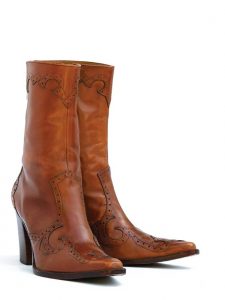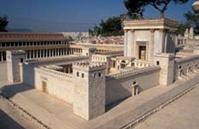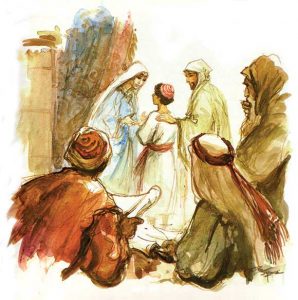
by: Rev. Rebecca J. Brimmer, International President and CEO
Both Christians and Jews eagerly long for the coming of the Messiah. Yet, the topic of Messiah is one that has caused great division between Christianity and Judaism. The greatest dispute we have between us is the identity of the Messiah. As Christians, we know that Jesus Christ (Yeshua HaMashiach) is the Messiah. Jews are equally convinced that He is not the Messiah. The Jewish rejection of Yeshua as the Messiah has been a catalyst for Christian persecution of Jews throughout the centuries. What are the Jewish people looking for in the Messiah? Why did the Jewish people reject Yeshua? Did Yeshua claim to be the Messiah? I recognize that to adequately address this subject would require volumes, yet it is a worthy and important topic for even the length of a Teaching Letter.
The Hebrew word for Messiah is Mashiach (משיח) and means “anointed one.” This word comes from the root word mashach (משח), which means “to anoint, smear (with oil), or consecrate.” The word mashiach appears 39 times in the Older Testament, although the word “messiah” only appears twice in most English translations. The remaining 37 times, the word is translated “anointed one.” It comes from the ancient Israeli custom of pouring oil on the head of a person being appointed to a position of authority. The Greek word for Messiah is Christos, translated into English as Christ. The word literally means “anointed one.” When Christians say Jesus Christ, most think they are saying His name, perhaps like our own first and last names. However, Christ is not His last name; it is His title. When we say it with His name, it is an affirmation of faith. We are literally saying, “Jesus the anointed one,” and we could also say it in Hebrew, Yeshua HaMashiach.

sparkia/ iStockphoto.com

huronphoto/ iStockphoto.com
Living in Israel, I have come to understand that one can say the same words and have totally different understanding about their meanings, even between English speakers. For instance, I wear boots on my feet, but my British friends put their suitcases into the boot of their car (trunk to Americans). In a similar fashion, Christians and Jews will sometimes have conversations in which both feel there has been good communication and walk away never realizing that they have not understood the intent of the other. Moshe Kempinski says this: “Until the final days, our two communities will continue to use the same words and terminology but not necessarily mean the same thing, which as we have shown, inevitably leads to misunderstanding and confusion.”

www.israelimages.com
Mashiach is one of these words. One of the most common misunderstandings is that there is only one Messiah in the Bible. While mashiach is mentioned 39 times in the Hebrew Bible, it can be applied to priests, kings, and prophets. “If the anointed [mashiach] priest sins bringing guilt to the people, then let him offer to the Lord for his sin which he has sinned…” (Leviticus 4:3). “And he [David]said to his men, the LORD forbid that I should do this thing to my master [Saul], the LORD’s anointed [mashiach], to stretch out my hand against him, seeing he is the anointed [mashiach] of the LORD” (1 Samuel 24:6). “Do not touch My anointed [mashiach], My prophets do not harm” (1 Chronicles 16:22).“Thus says the LORD to His anointed [mashiach], to Cyrus [the King of Persia]whose right hand I have held…” (Isaiah 45:1).

www.israelimages.com
I have attended outdoor rallies in Israel when 100,000 Jewish people have fervently sung “Mashiach, Mashiach, Mashiach.” It was an electrifying moment when I felt the heartfelt desire of the people for the Messiah to come. The lyrics were written by Rabbi Moshe ben Maimon, more commonly known of as the Rambam or Maimonides (1135–1204 AD). He developed the 13 Principles of Faith, the most widely accepted list of Jewish beliefs. Number 12 says, “I believe with perfect faith in the coming of the mashiach, and though he may tarry, still I await him every day.”
What are the Jewish people looking for in a Messiah?
1. He will be a great political leader descended from King David (Jeremiah 23:5).
2. He will be well-versed in Jewish law and observant of its commandments (Isaiah 11:2–5).
3. He will be a charismatic leader, inspiring others to follow his example.
4. He will be a great military leader, who will win battles for Israel.
5. He will be a great judge, who makes righteous decisions. He will restore the religious court system of Israel and establish Jewish law as the law of the Land (Jeremiah 33:15).
6. He will bring about the political and spiritual redemption of the Jewish people by bringing them back to Israel and restoring Jerusalem (Isaiah 11:11–12; Jeremiah 23:8, 30:3; Hosea 3:4-5).
7. He will establish a government in Israel that will be the center of all world government, both for Jews and gentiles (Isaiah 2:2–4, 11:10, 42:1).
8. He will rebuild the Temple and re-establish its worship (Jeremiah 33:18). (9 points taken from www.jewfaq.org.)
In reading Jewish authors on the subject, it is clear that many Jewish people believe that it is possible to be the Messiah. In fact, many “messiahs” have come forward throughout Jewish history. Wikepedia identifies seven such messiahs (including Jesus) between AD 6 and 135. On the Jewish Web site http://www.jewfaq.org, it says: “It has been said that in every generation, a person is born with the potential to be the mashiach. If the time is right for the messianic age within that person’s lifetime, then that person will be the mashiach. But if that person dies before he completes the mission of the mashiach, then that person is not the mashiach.”

Auschwitz-Birkenau death camp (iStockphoto.com)
Rabbi Hayim Halevy Donin, in his book To Be a Jew, explains; “The Messiah in Jewish thought was never conceived of as a Divine Being. As God’s anointed representative, the Messiah would be a person who would bring about the political and spiritual redemption of the people of Israel through the ingathering of the Jews to their ancestral home of Eretz Yisrael [land of Israel] and the restoration of Jerusalem to its spiritual glory. He would bring about an era marked by the moral perfection of all mankind and the harmonious coexistence of all peoples, free of war, fear, hatred and intolerance (see Isaiah 2, 11 and Micah 4). Claimants to the Messianic title arose at various times throughout Jewish history. The criterion by which each was judged was: Did he succeed in accomplishing what the Messiah was supposed to accomplish? By this criterion, clearly none qualified. The Messianic era is still ahead of us. The reestablishment of a Jewish State in our times and the restoration of a united Jerusalem as the capital of that State have led many devout Jews to hope that these times may be the beginning of that process of redemption that will ultimately lead to the realization of all the other ideals inherent in the Messianic belief.”
The fact that many prophetic promises concerning the Messianic Age have not yet been fulfilled makes it difficult for Jewish people to think of Yeshua as the Messiah. Rabbi Yechiel Eckstein says: “This idea sheds light on one of the most fundamental differences between Judaism and Christianity?the Christian belief that the Messiah has come and the Jewish insistence that he has not. Judaism affirms the inevitable incompleteness of a personalized salvation and individualized holiness so long as they are not indissolubly linked with the messianic redemption of Israel and the world. Christianity, on the other hand, affirms that the Messiah has come and that the individual can achieve spiritual completion and fulfillment now by accepting Jesus as his personal Savior and Redeemer. The Jewish mission is to bring about the completeness and fulfillment of both man and the world?to bring Messiah! The continued existence of evil and suffering in the world and the ongoing mystery of the survival of the Jewish people bear eloquent testimony that the Jewish mission is not yet complete?the world has yet to be fully redeemed.”
Yeshua lived as an Orthodox Jewish man in first-century Israel at an extremely turbulent time. The Jewish people were in bondage to cruel oppressive Roman overlords. They felt the need for the Messiah to deliver them. There was great Messianic expectation. Jewish author Gershom Gorenberg describes it this way: “Jesus appeared during those centuries of ferment. Christianity was the daughter not simply of Judaism but of a Judaism burning with expectation, standing on tiptoes and ready to leap into the End. In the Gospel of Mark, Jesus’ first words are, ‘The kingdom of God is at hand.’ The new faith asserted that the messiah had actually arrived, making the time that follows into a pause before he completes his task.”
Did Yeshua claim to be the Messiah? Most Christians would quickly say yes. But, if you carefully look in the Newer Testament, you will not find a clear statement from Yeshua saying, “I am the Messiah.” Yet, when one understands Hebraic thought, it is clear that Yeshua did claim to be the Messiah. He did so in what may seem obscure ways. Perhaps this is because there were so many claiming to be the Messiah. He knew that His actions would validate who He was. Repeatedly, we find Yeshua showing Himself to be the Messiah by speaking and acting in fulfillment of accepted messianic Bible passages. He spoke in a Hebraic manner, using messianic phrases from the Hebrew Scriptures, so that the people who were looking for a spiritual Messiah would know He was the Promised One.
 Throughout the Gospels, Yeshua often refers to Himself as the “Son of Man,” which comes directly from Daniel 7:13–14. It was a well-accepted messianic title, bar enash(Aramaic, not Hebrew), which describes a messianic figure of heavenly origin. “In my vision at night I looked, and there before me was one like a son of man [bar enash], coming with the clouds of heaven. He approached the Ancient of Days and was led into His presence. He was given authority, glory and sovereign power; all peoples, nations and men of every language worshiped Him. His dominion is an everlasting dominion that will not pass away, and His kingdom is one that will never be destroyed.” (NIV)
Throughout the Gospels, Yeshua often refers to Himself as the “Son of Man,” which comes directly from Daniel 7:13–14. It was a well-accepted messianic title, bar enash(Aramaic, not Hebrew), which describes a messianic figure of heavenly origin. “In my vision at night I looked, and there before me was one like a son of man [bar enash], coming with the clouds of heaven. He approached the Ancient of Days and was led into His presence. He was given authority, glory and sovereign power; all peoples, nations and men of every language worshiped Him. His dominion is an everlasting dominion that will not pass away, and His kingdom is one that will never be destroyed.” (NIV)
When Yeshua used this title, He was claiming to have come from heaven with a spiritual mission. Stephen, in the act of being stoned to death, described his heavenly vision in Acts 7:56, saying, “Look, I see the heavens opened and the Son of Man standing at the right hand of God.” Everywhere we find Yeshua referring to Himself as the Son of Man, He was making it clear He was the Messiah. Yeshua said unequivocally that He had the authority to forgive sins because He was the Son of Man (Matthew 9:2, 5–6; Mark 2:5, 9–10; Luke 5:23–24, 7:47–48).
When Yeshua was 12 years old, He stayed in Jerusalem after His parents had begun the journey home. When they missed Him, they searched until they found Him in the Temple in discussion with the sages. He astonished the teachers in the Temple by His understanding (Luke 2:46–50). When questioned by Mary about His actions, He replied, “Why did you seek Me? Did you not know that I must be about My Father’s business? (v. 49). Even as a boy, Yeshua refers to God as “My Father.” He continued to use the term throughout the Gospel accounts, a total of 40 times!
The late Jerusalem scholar Dr. Robert Lindsey explained the significance of this expression: “Synagogue prayers contain the expression, ‘Our Father [Avinu] who is in heaven,’ many times, and Jesus taught His disciples to pray a prayer which also begins, ‘Our Father who is in heaven.’ The expression, ‘My Father [avi],’ however, almost certainly must have seemed improper to the Jews of that period. Only once in the Hebrew Scripture is God referred to as ‘my Father,’ and that is in Psalm 89, which speaks of the coming Messiah. Verse 26 reads, ‘He will call to me, “Avi atah, You are my Father!…’ The Messiah has the right to call God ‘my Father.’ I am quite sure that the rabbis of Jesus’ day taught the people to say ‘Our Father who is in heaven,’ because they say ‘my Father’ was reserved for the Messiah alone. Second Samuel 7:14 also contains a prophecy about the Messiah:‘I will be to him a father, and he will be to me a son.’ This verse marks the beginning of a coming Messiah who is the son of God. It was known from Psalm 89:26, 2 Samuel 7:14 and Psalm 2:7 that the Messiah would be the son of God, but these verses do not contain the expression ‘son of God.’ What is used is, ‘He will call to me, “You are my Father,”’ ‘I will be a father to him, he will be a son to me’; and, ‘You are my son, this day I have brought you forth.’This is the Hebraic way of expressing messiahship?it is the way the Holy Spirit spoke and the way Jesus spoke.”
When in Nazareth, His hometown, Yeshua attended the synagogue one Shabbat (Sabbath) and was honored by being asked to come forward to read the Torah (Gen.–Deut.) scroll. He opened the scroll and read Isaiah 61:1–2, which was understood to be a messianic passage:“’The Spirit of the Lord is upon Me, because He has anointed Me to preach the gospel to the poor. He has sent Me to heal the brokenhearted, to proclaim liberty to the captives and recovery of sight to the blind, to set at liberty those who are oppressed; to proclaim the acceptable year of the LORD.’ Then He closed the book, and gave it back to the attendant and sat down. And the eyes of all who were in the synagogue were fixed on Him. And He began to say to them, ‘Today this Scripture is fulfilled in your hearing.” (Luke 4:18–21).
There is no doubt that the men of the synagogue understood that He was proclaiming Himself to be the Messiah. He continued His discourse for awhile, and then we are told: “So all those in the synagogue when they heard these things, were filled with wrath, and rose the thrust Him out of the city…” (vv. 28–29). These people may not have accepted the messiahship of Yeshua, but they certainly understood His messianic claim. Yeshua clearly fulfilled the Messianic promises of Isaiah 61:1–2, as He went about healing the sick and giving sight to the blind.
On a few occasions, Yeshua clearly declared Himself to be the Messiah. In John 4, Yeshua spoke with a Samaritan woman outside the city of Sychar. In the course of their conversation, “The woman said to Him, ‘I know that Messiah is coming’ (who is called Christ). ‘When He comes, He will tell us all things” (John 4:25). In one of the clearest declarations of His messiahship, Yeshua revealed Himself to the woman, saying, “I who speak to you am He” (v. 26).
Another declaration that He was the Messiah occurred at His trial before the high priest Caiaphas, the chief priests, the elders, andscribes (Matthew 26:57–68; Mark 14:53–65; Luke 22:66-70, 23:2). In Mark’s account, the high priest finally asked Yeshua directly, “Are you the Christ, the Son of the Blessed?” and Yeshua responded, “I am. And you will see the Son of Man sitting at the right hand of the Power, and coming with the clouds of heaven” (vv. 61–62) Robert Lindsey points out, “The chief priests and teachers of the law clearly understood Yeshua’s Messianic claims. While they did not believe it, there was no argument—Yeshua claimed to be the Messiah, the Son of Man and the Son of God! For this, they brought Him to Pilate to be punished. They considered His claims blasphemous, others considered it divine.”
In John 17:3, Yeshua prayed to the Father and said, “And this is eternal life, that they may know You, the only true God and Jesus Christ [Yeshua HaMashiach]whom You have sent.”
Even though Yeshua knew that He was the Messiah and communicated it on occasion to others, He often told those He healed to tell no one. When Simon Peter made his great profession of faith saying, “You are the Christ [Messiah],the son of the living God,”Yeshua answered and said, “Blessed are you, Simon Bar-Jonah, for flesh and blood has not revealed this to you but My Father who is in heaven”(Matthew 16:16–17). In verse 20, we read, “Then He commanded His disciples that they should tell no one that He was Jesus the Christ [Yeshua HaMashiach].”
Yeshua’s purpose for His first coming was to die for the sins of mankind, to be the Savior of the world, providing a way for us to be able to enter the presence of a sinless, just God. During this time, He fulfilled many—though not all—prophetic, messianic Scriptures. We eagerly anticipate the day when we will see the rest fulfilled.
Some have suggested that Yeshua came to be the Messiah only to the Gentile world. But He Himself said, “I was not sent except to the lost sheep of the house of Israel” (Matthew 15:24). Yet, before Yeshua ascended to heaven, He clearly revealed His plan to give the Gentiles (the nations) an opportunity to partake of the blessings of the kingdom of God when He said, “Go therefore and make disciples of all the nations, baptizing them in the name of the Father and of the Son and of the Holy Spirit, teaching them to observe all things that I have commanded you” (Matthew 28:19). This is just as foretold by Simeon in the Temple. “Lord now You are letting Your servant depart in peace, according to Your Word; for my eyes have seen Your salvation which You prepared before the face of all peoples, a light to bring revelation to the Gentiles, and the glory of Your people Israel” (Luke 2:29–32). His salvation was always to be available for all peoples, and the glory of the people of Israel.
 |
As we have seen in this short study Yeshua definitely viewed Himself as the Messiah. While He did not directly say, “I am the Messiah” or “I am the Son of God,” in a first-century rabbinic way, He makes it very clear that He was the Messiah. It is important for all Christians to begin to understand the Hebraic world that He knew so well, if we are to understand His words. As Robert Lindsey pointed out: “One must always keep in mind when reading the Gospels that they preserve words and ideas that originally were spoken in Hebrew against a backdrop of rabbinic thought. Today, this is utterly foreign to most Christians. Hidden in the text of the Scriptures are words and concepts that are Hebraic. When they were spoken in the Hebrew of the first century, they were not hidden, but clearly express things that now seem obscure to us. If we want to know more about who Yeshua was and what He said, we need to learn more about the language He spoke and the milieu in which He lived.”
As Christians, we eagerly anticipate the coming of Yeshua. Certainly, we see many signs of the end times, which were prophesied by the Hebrew prophets.
We are not alone in this expectation! Many of our Jewish friends are also looking at the fulfillment of Bible prophecy and anticipating haolam haba (the world to come). David Rubin, a modern Orthodox resident of Shiloh believes that the day is coming when we Bible believers (both Jews and Christians) will be united. He sites Zechariah 14:9: “God will be King over all the land; on that day the Lord will be One and His Name will be One.”He explains, “In other words, on that day, there will be no confusion or disagreement between Jews and Christians about the ‘Messiah question’ or any other questions of theology. All of the theological disagreements that have tragically been the catalyst, even the excuse, for so much Jewish pain and bloodshed in the past will remain, in the past. There will be unprecedented unity among the peoples of the world in the desire to praise God in the proper way, which will be clear to all of us on that day.”
In recent years, I have been in many conversations with Jewish people, including Orthodox rabbis, in which the concept of a shared future when together we will follow the Messiah was discussed. One oft repeated suggestion is that when Messiah comes, we should get a committee together of Christians and Jews and ask the Messiah this question: “Sir, have you ever been here before?”
In one such conversation, I was asked by a Jewish friend if I didn’t believe there were two ways to heaven, one for the Jews and one for the Christians. While it would have been more comfortable for my Jewish friend if I had agreed, I was unable to do so. I told him, I believe in the Shema: “Hear O Israel, the Lord our God is one! You shall love the Lord your God with all your heart, with all your soul, and with all your strength” (Deuteronomy 6:4–5). I went on to say, “We may not agree on the identity of the Messiah, but there is only one Messiah, just as there is only one God. When He comes, I know we will both follow Him.” I pray that He will come soon and usher in the Messianic Age we all so eagerly anticipate.
Benner, Jeff A. http://www.ancient-hebrew.org
Blue, Lionel and Jonathan Magonet. The Jewish Guide to the Here and Hereafter. New York: Crossroad Publishing, 1989.
Donin, Hayim Halevy. To Be a Jew: A Guide to Jewish Observance in Contemporary Life. Basic Books (a division of Perseus Books Group), 1972.
Eckstein, Yechiel. How Firm a Foundation. Brewster, MA: Paraclete Press, 1997.
Flusser, David. Jesus.Jerusalem, Israel: The Magnes Press, 1998.
Gorenberg, Gershom. The End of Days. New York: Oxford University Press, 2000.
Kempinski, Moshe Avraham. The Heart of the People.Jerusalem, Israel: Shorashim of the Old City Publications, 2006.
Lindsey, Robert L. Jesus, Rabbi and Lord: The Hebrew Story of Jesus Behind Our Gospels. Cornerstone Publishing, 1989.
Rich, Tracey R.http://www.jewfaq.org
Rubin, David. God, Israel and Shiloh: Returning to the Land. Jerusalem, Israel: Mazo Publishers, 2007.
Smith, James. The Promised Messiah. Nashville, TN: Thomas Nelson Publishers, 1993.
Wikipedia. “Messiah.” www.wikipedia.com
Wilson, Marvin R. Our Father Abraham: Jewish Roots of the Christian Faith. Grand Rapids, MI: Eerdmans Publishing, 1989.
All logos and trademarks in this site are property of their respective owner. All other materials are property of Bridges for Peace. Copyright © 2024.
Website Site Design by J-Town Internet Services Ltd. - Based in Jerusalem and Serving the World.